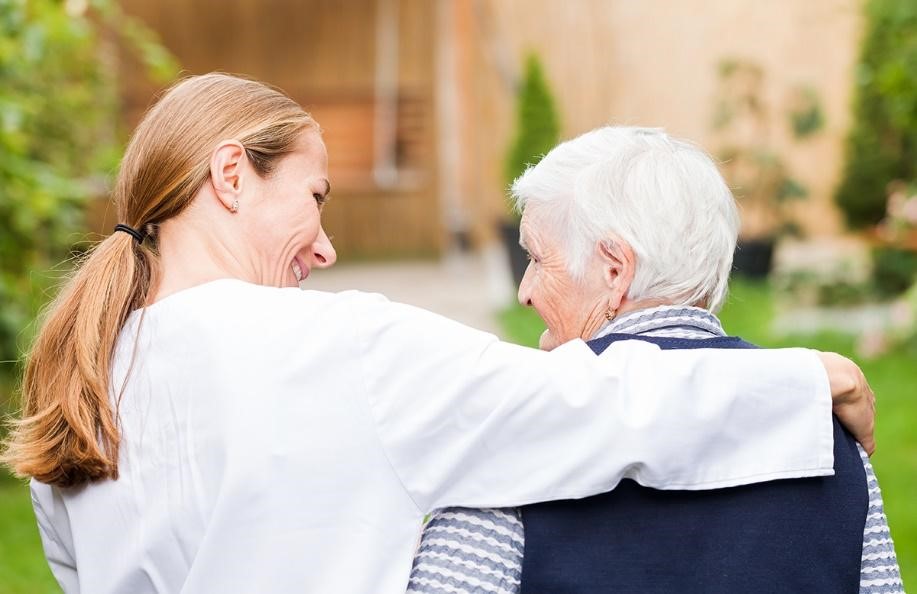As people age, they may experience a range of physical, social and emotional changes that can impact their mood and well-being. Additionally, seniors are at a higher risk of experiencing loss, such as the death of a loved one or declining physical abilities, which can further trigger depression. Understanding and addressing the symptoms of depression among seniors is crucial for promoting their overall health and quality of life.
In this article, we will discuss several risk factors that can lead to clinical depression in the elderly.
Loneliness and Social Isolation
As seniors age, maintaining social connections can become increasingly difficult due to physical, social and emotional changes. Seniors who lack social connections with family members or support systems are at higher risk for experiencing depression, a serious but common mental health issue.
Social connections are crucial for seniors’ mental health and support. While social connections can come in different forms, such as with family members, friends and community activities, seniors may face challenges as they age that limit their ability to maintain and establish these connections.
Depression, in particular, can have tangible consequences on seniors’ quality of life. Seniors may experience reduced energy, lack of motivation, difficulty concentrating and disrupted sleep and eating patterns.
To combat social isolation and depression in seniors, communities, families and health care professionals can take different measures. Families can play a crucial role in supporting their senior loved ones’ social connections through simple activities like shared meals, phone calls and regular visits. Health care professionals can identify depression and other mental health issues through routine screening and monitoring of seniors’ symptoms. Early intervention and effective treatment often can prevent depression from becoming a severe and chronic health condition itself.
Cleveland in-home care service companies like Cherished Companions provide Companion Care, which helps seniors meet their emotional needs.
Chronic Pain, Illness, and Disability
Chronic pain, illness and disability are prevalent issues among seniors that can significantly impact their physical and mental health. These conditions can lead to feelings of helplessness, loss of independence, isolation, worsen depression and have been linked to depression.
Seniors with a chronic medical condition or pain may struggle to perform daily activities and hobbies, affecting their quality of life, and lead to feelings of frustration, sadness and hopelessness. These emotional challenges can contribute to depression.
Chronic pain is often accompanied by other health issues, such as arthritis, which can lead to severe depression due to physical limitations, social isolation and loss of independence. Seniors living with these conditions may find it challenging to participate in social and physical activities that once brought them joy.
In addition to chronic pain, seniors may experience other chronic conditions, such as heart disease, diabetes and cancer, which can have significant impacts on their physical and emotional well-being. These medical conditions can lead to lifestyle changes, such as restricted diets or the need for medical treatments or devices, which can affect seniors’ mental health.
Living with a disability can also impact seniors’ mental health. Disabilities can hinder mobility and make it difficult for an older person to perform daily activities. Seniors living with disabilities may also face barriers to participating in social and physical activities with their friends and family.
Treating depression in seniors with chronic pain, illness and disability requires careful attention to their physical and mental health needs. Seniors with depression may benefit from treatments such as antidepressant medications, talk therapy or a combination of both. It is essential to work with health care providers to develop an individualized treatment plan that addresses physical, emotional and social needs.
Seniors with chronic pain, illness and disability can benefit from support groups, counseling and self-help resources that offer strategies for coping with their conditions. They can also benefit from resources that promote physical activity and socialization, such as exercise classes or senior centers.
Choosing Cherished Companions for Chagrin Falls In-Home Care to Prevent Depression in Seniors
As older adults are becoming an increasingly significant segment of the population, more and more individuals are deciding to age in place and not transition to senior living communities. In-home care services have become a prominent alternative for seniors to access much-needed support while preserving their independence. Cherished Companions is an esteemed and dependable provider of in-home care services explicitly tailored to the distinct needs of seniors.
Why Choose Cherished Companions for In-Home Care Services?
Cherished Companions emphasizes personalized care that is centered on the distinct needs of each client. Our team of caregivers are experts in providing a diverse set of services such as medication reminders, transportation assistance, personal and companion care. We communicate effectively with clients and their families to design customized care plans that suit their specific requirements.
Our caregivers exemplify empathy and the importance of our values when it comes to providing top-quality care to our clients. They pass through background checks, guaranteeing the safety and security of all our clients. We offer affordable and flexible care services that aim to uphold the independence and comfort of seniors.
Each client is unique, and we recognize that by providing personalized services that prioritize their emotional, social and overall well-being. Our aim is to prevent social isolation and depression among seniors by promoting social involvement and companionship.
If you’re worried about your loved one’s mental health, it’s essential to seek professional help. Reach out to Cherished Companions to learn more about our in-home care services.






